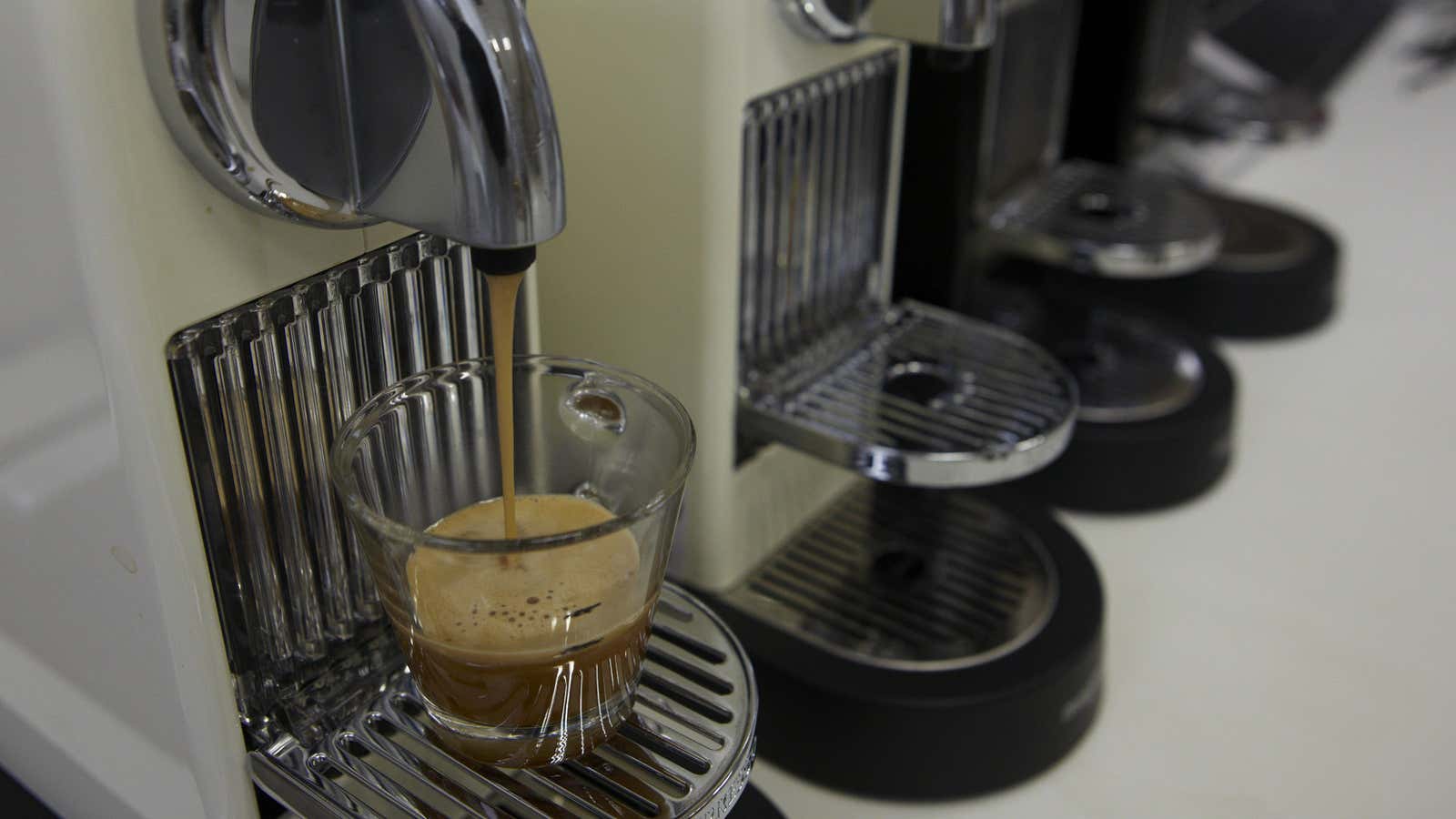The office coffee maker isn’t just a gathering spot for gossip and awkward small talk. It’s also a breeding ground for a veritable zoo of bacteria, as researchers have found after conducting a microbiological survey of the waste trays of capsule-style coffee machines.
A team of microbiologists from Spain’s University of Valencia sampled the coffee collected in the drip trays of nine different Nespresso machines. They also looked at their own office Krups Inissia over two months to study bacteria’s colonization process. The results were published in the journal Scientific Reports.
They found that bacteria loves coffee almost as much as office workers do.
There were 35 to 67 different bacteria genera breeding in each machine’s drip tray, including pathogenic strains—that is, bacteria that can make you sick. Each genera can contain several different species.
The researchers only counted the number of different bacteria types in their samples, not the total cells. A CBS investigation earlier this year found bacteria including staphylococcus and E. coli on the Keurig machines it swabbed. More than half were harboring millions of bacteria cells.
Bacteria appear to thrive in the high temperatures and chemical makeup of the coffee making process itself. Neither user behavior, the type of coffee brewed, nor frequency of the machine’s use seemed to affect the composition of the bacteria present.
Caffeine is antibacterial. Yet the researchers found that of the most prevalent types of bacteria present was Pseudomonas, which breaks down caffeine. Further study on this could help scientists figure out a way to use bacteria for decaffeination and environmental remediation, the authors wrote.
It’s not really fair to blame the single-use coffee maker here. Your Nespresso machine probably isn’t as hideously toxic as, say, your dishwashing sponge. Bacteria love warm, damp environments, and coffee makers (single-use and traditional) are one of many such spots in the kitchen where they thrive.
If that’s not something you like to think about as you have your morning cup, there’s a simple solution. Wash that coffee maker.
“There is probably always going to be a significant bacterial population in an organic ‘soup’ such as the one present in the coffee leach tray of the capsule machines,” study author Manuel Porcar told Quartz.
However, he added, a weekly wash in warm water with soap and perhaps a few drops of bleach would “decrease bacterial densities to very low values.”
